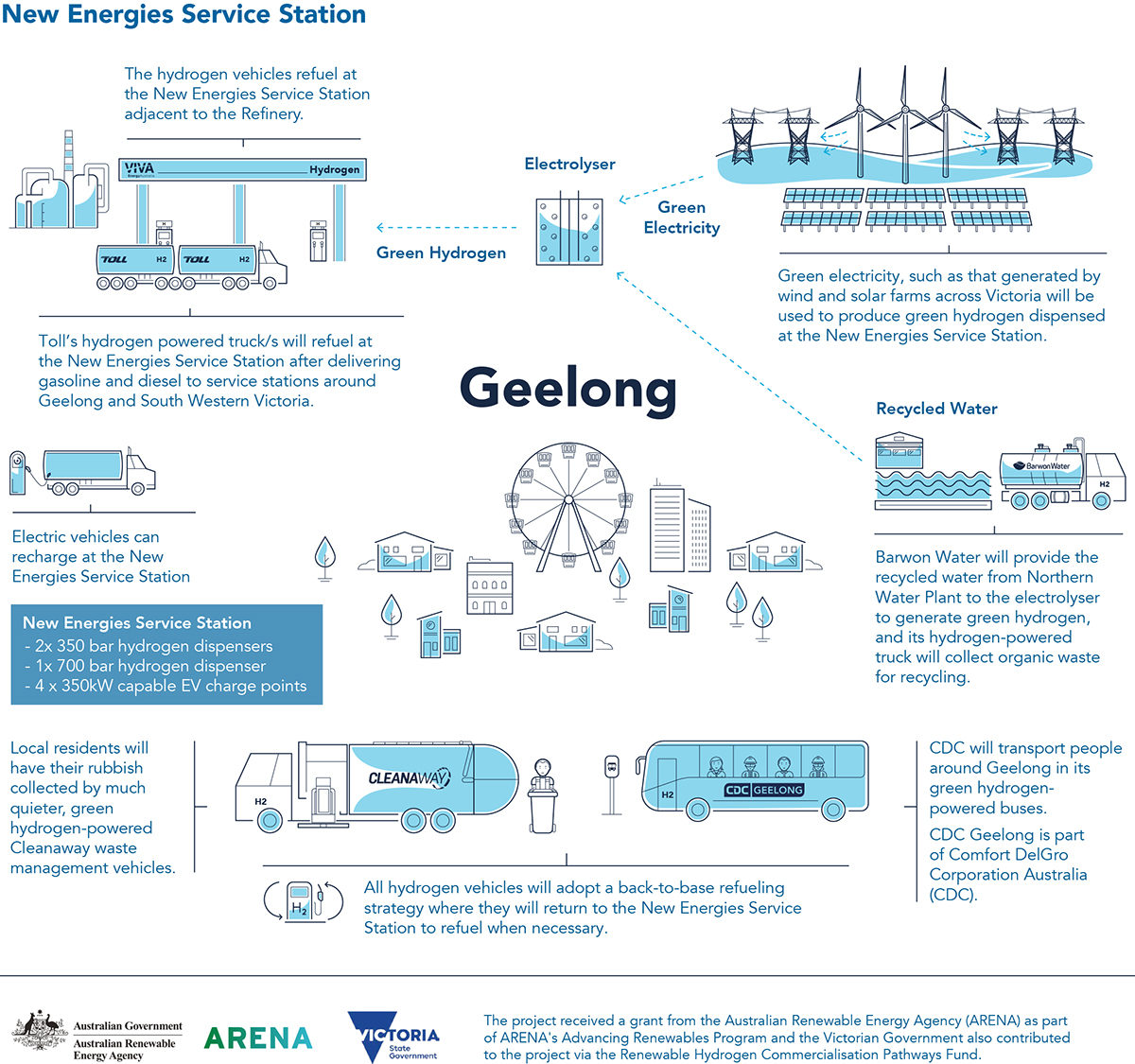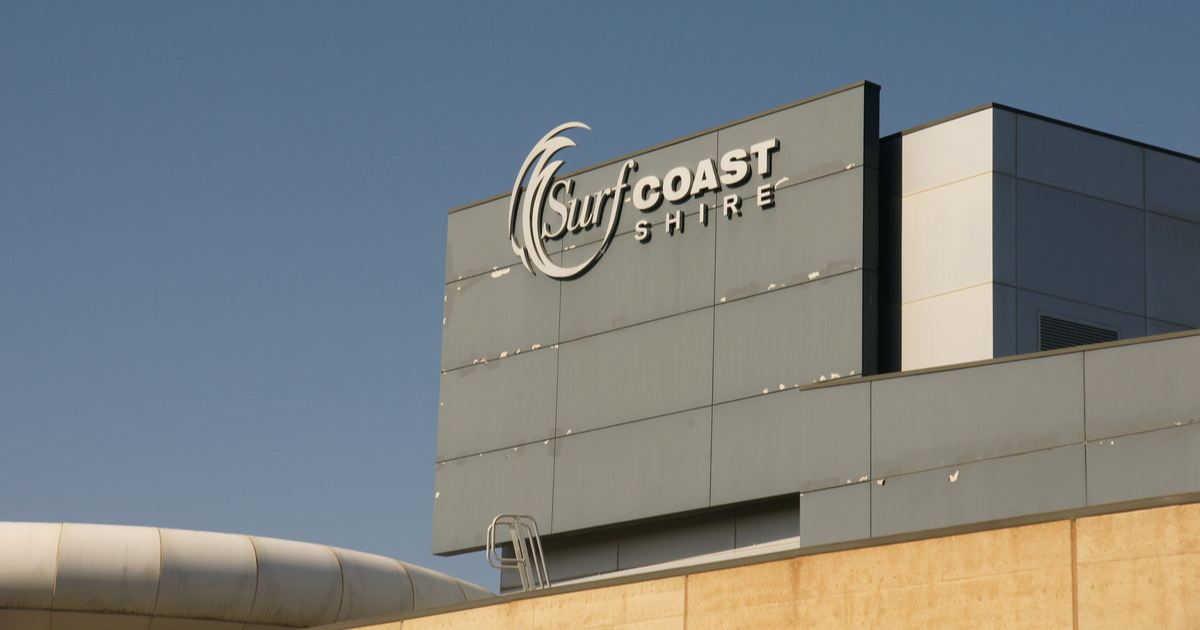Geelong leads nation with first hydrogen fuel station

Viva Energy’s new hydrogen service station in Corio will begin refuelling a new fleet of hydrogen fuel cell electric vehicles from next week, marking a major milestone in Australia’s clean transport journey. Photos: ELLIE CLARINGBOLD
The $61.2 million project has been almost four years in the making and marks the country’s first publicly accessible hydrogen refuelling station, designed to service a fleet of hydrogen fuel cell electric vehicles (FCEV) operated by the project’s local partners.

These partners include Toll Group, Cleanaway, ComfortdelGro Corporate Australia (CDC) and Barwon Water, each of which operate heavy vehicle fleets, such as buses and rubbish trucks, in Geelong and have purchased hydrogen FCEV with support from the federal government’s Australian Renewable Energy Agency (ARENA).
Located on the corner of the Princes Highway and Station Street in Corio, adjacent to Viva Energy’s refinery, the refuelling station features a 2.5-megawatt onsite electrolyser, which converts energy gathered from wind and solar farms, and recycled water from Barwon Water’s nearby wastewater treatment plant, into renewable hydrogen.
The electrolyser will have the capacity to generate 1,000 kilograms of hydrogen daily, with the station capable of refuelling 10 trucks or buses consecutively in under two hours. The station also features fast changing options for commercial electric vehicles.

Viva Energy chief strategy officer Lachlan Pfeiffer said the project was part of the organisation’s broader strategy to diversify its energy offerings and support the growing demand for cleaner energy solutions.
“By providing hydrogen as an alternative fuel, we are aiming to reduce emissions and contribute to the development of a more sustainable heavy transport sector in Australia,” he said.
“Offering hydrogen refuelling alongside fast charging for commercial EV vehicles – and the potential for renewable diesel in the future – is recognition that we believe the pathway to net zero will require a mix of new fuels and technologies alongside traditional offerings.”

Acting Prime Minister Richard Marles and Victorian Minister for Energy and Resources Lily D’Ambrosio attended today’s launch, both celebrating the project’s potential to drive down emissions and lower fuel costs over time.
The federal government, through ARENA, contributed $34 million to the project, while the state government contributed $1 million.
“Welcome to the future because that is what this facility is,” Mr Marles said, describing the project as having a “chicken-and-egg quality”.

“Using renewable energy to electrolyse water to create hydrogen, which can then be used as a source of commercial fuel, is really one of the great hopes of decarbonising the Australian economy, but more than that, actually working on the global challenge of action in respect of climate change.”
As part of the project, Viva Energy will deploy 15 hydrogen-powered heavy vehicles, servicing a range of industries, that will be on Victorian roads within two years, while the service station itself is the first in what the organisation intends to be a nationwide refuelling network along major commercial road transport routes.
Viva Energy chairman Robert Hill said the organisation believes in the energy transition and had “turned the ‘talk the talk’ into ‘walk the walk'”.

He noted the importance of investing for the future, citing the potential for Viva Energy’s facilities to one day produce renewable diesel, sustainable aviation fuel and renewable plastic.
“If we can put together another team with enough determination, and with the funds and support that we need, we can do it and Geelong and Viva down here and this great facility can demonstrate, again, that it’s the future and not just the past.”

















